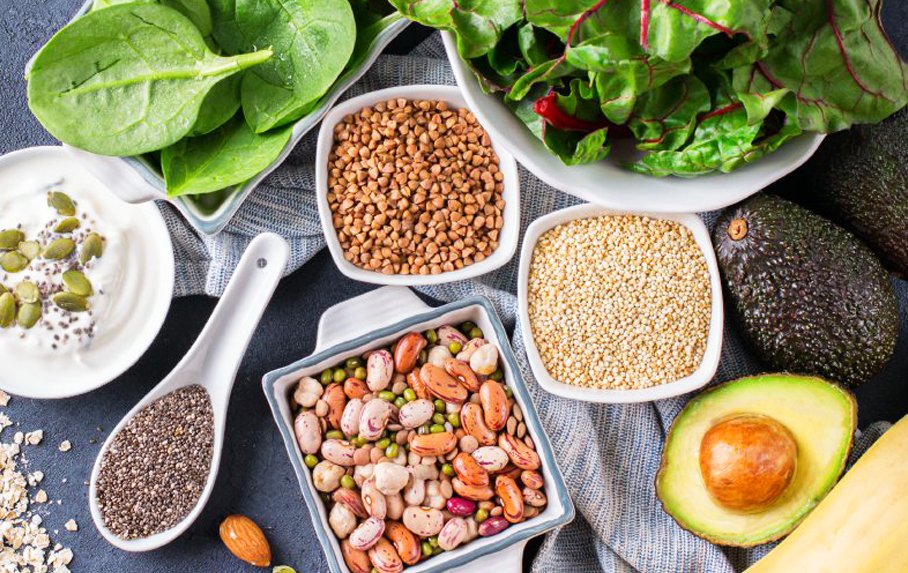Do you find it hard to get a handle on your sugar cravings? No doubt this is a reality for many people. I’m not going to deny the fact that sugar is delicious, but it’s not the only delicious thing in the world, and certainly not something we should be making lots of room for within our everyday diet. Sugar cravings seem to be a regular experience for many people. It’s true that our bodies do need sugar, as glucose is the body’s preferred source of energy, but the amount we actually need is small and should not commandeer our daily lives.
Frequently craving sugar? No doubt this is a reality for many people. I’m not going to deny the fact that sugar is delicious, but it’s not the only delicious thing in the world, and certainly not something we should be making lots of room for, within our everyday diet. Sugar cravings seem to be a regular experience for many people. It’s true that our bodies do need sugar, as glucose is the body’s preferred source of energy, but the amount we actually need is small and should not commandeer our daily lives.
Even with this knowledge, sugar is hard to steer-clear of. When we are excited and celebrating, sugar in some form is usually involved (champagne! cake! chocolate!), when we are stressed, or upset, we generally crave sugar more. When we are tired, we’re convinced sugar will give us the lift we need… As a nutritionist, but first and foremost, a human being, I honestly cannot think of a time that sugar solved my problems. Green vegetables, sleep, or a good hug on the other hand, these remedies work! Let’s address the elephant in the room here and admit that we all have to get real when it comes to our sugar-craving behaviours. But why are we craving sugar in the first place? Perhaps the root cause of sugar cravings lies in mineral deficiency…

Which Minerals Are We Talking About?
Chromium plays a huge role in the body’s utilisation and uptake of insulin . Insulin, a hormone secreted by the cells of the pancreas, enables the body to use the sugar we obtain through the diet effectively, for energy. Insulin is a delicate hormone that endeavours to keep blood sugar levels – the amount of sugar obtained from food within your blood at any given time – stable. No doubt you’re familiar with the feeling that occurs after eating something incredibly sweet and high in sugar; you immediately feel energised, but this feeling is counteracted a little while later with a drop in energy. This is the exact definition of imbalanced blood sugar levels. The same crash feeling can be felt if you haven’t eaten for a while, too.
It’s the role of insulin to keep blood sugar levels balanced so we don’t feel these crazy sugar highs and lows; however, what’s come to be recognised as the typical Western diet over the last few decades is preventing the optimal function of insulin.
Chromium deficiency is incredibly rare, as it is a trace mineral which we need in very small amounts, but our Western diet, which is high in sugar, is known to increase the body’s excretion of chromium through urine. Insufficient chromium has been found to be a key contributor in poor glucose (sugar) utilisation and impaired insulin tolerance. In many studies, chromium supplementation has been shown to lower blood sugar levels and keep insulin levels stable.
Although the trials mentioned above were tested with chromium supplements, regularly consuming foods high in chromium, by healthy people, is a wise suggestion to prevent potential future deficiency and help the body deal with cravings.
High dietary sources of chromium include broccoli, turkey, brewer’s yeast, chicken, parsley, eggs, beef, oats, sweet potato and white potato.
“It’s true that our bodies do need sugar, as glucose is the body’s preferred source of energy, but the amount we actually need is small and should not commandeer our daily lives.”
Magnesium is the body’s fastest depleted mineral. It’s the fourth most abundant mineral in the body, which highlights its relevance and importance. It’s involved in over 300 enzyme systems, is required for generating energy in the body, regulates calcium levels, controls the body’s muscle contractions, heart rhythm, and nerve impulses, and transports ions across cell membranes. Big shoes to fill, huh!
Magnesium also plays an interesting role in healthy glucose metabolism. An imbalanced relationship between magnesium and insulin levels was observed in 11 cohort studies that followed more than 36,000 people who were otherwise healthy (did not have diabetes). These studies revealed the relationship between increased magnesium intake and its ability to lower glucose and insulin levels.

Funnily enough, one of the largest magnesium-depleting substances is the very thing we crave – sugar. The more sugary foods and beverages we consume, the more magnesium our bodies need to help deal with the stress and damage the very sugars cause. Dr Natasha Campbell McBride, expert in neurology and human nutrition states, “The body requires at least twenty-eight molecules of magnesium to metabolize a single molecule of glucose. ” And we all know, that once we have a taste for sugar, we immediately want more!
High dietary sources of magnesium include leafy green vegetables, rice, dates, cacao, nuts, seeds, beans and peas.
REFERENCES
Nutrient Reference Values for Australia and New Zealand: Chromium
Oregon State University MIC: Chromium
NUTTAB 2010 Online Searchable Database
Oregon State University MIC: Magnesium






